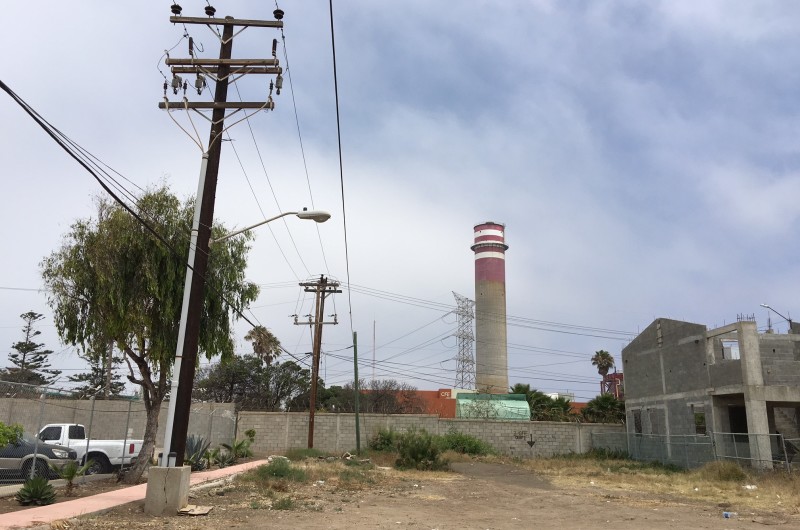San Diego’s top water quality official worries that a new desalination plant in Mexico could worsen the decades-long problem of sewage spilling across the border into the United States.
The connection between that plant and sewage spills may not be obvious. But there are three connections: wastewater management, money and politics.
For years, Mexican officials have been working to build a desalination plant in Rosarito Beach that would eventually make 100 million gallons a day of Pacific Ocean water drinkable.
David Gibson, executive director of the San Diego Regional Water Quality Control Board, says the new desalination plant could siphon money from the already strained Tijuana sewer system.
That worry grew more acute after a recent spill sent millions of gallons of sewage north through the Tijuana River in February, causing foul odors and closing beaches in the South Bay. A collapsed sewer line is believed to be responsible for making the spill the largest in over a decade – though an investigation by U.S. and Mexican officials is still trying to pin down exactly what happened.
As the scope of that spill became clear, Gibson wrote on March 2 to the International Boundary and Water Commission, a binational agency that is supposed to help settle differences along the border.
He said the costs of the desalination plant could burden the Public Service Commission in Tijuana “with so much debt service obligations as to effectively limit or even preclude funding for sewer system improvements in coming years.”
In another letter from the same day to the North American Development Bank, which helps fund projects along the border, Gibson suggested the bank should encourage Tijuana to first focus on its sewer system and recycling sewage into drinkable water, rather than spending money on a new desalination plant. Rosarito Beach is on the southern coastal outskirts of Tijuana, but water from the plant would be sent to Tijuana-area water customers via a 25-mile pipeline.
By recycling sewage, something San Diego is also considering, Tijuana would presumably reduce the amount of sometimes poorly treated wastewater that American officials say can foul up San Diego’s coastal waters.
Gibson’s complaints are not new, nor as they his alone.
As the Rosarito Beach desalination project picked up steam last year, Imperial Beach Mayor Serge Dedina and the environmental group he leads, Wildcoast, lobbied against a federal permit that would allow water from the Rosarito Beach desalination plant to eventually be sold in the United States.
They argued Mexican officials should focus on their sewer system before selling drinking water across the border to the Otay Water District.
The Rosarito desalination plant would be twice the size of the new desalination plant the San Diego County Water Authority helped build in Carlsbad, which provides about 10 percent of San Diego’s water.
Like San Diego, most of Tijuana’s drinking water comes from the Colorado River. While a good winter has helped replenish the Colorado, it has just gone through a historic drought that worried officials in both countries that rely on it.
The Otay Water District has backed the Rosarito Beach project for years in an effort to have its own independent supply of water, separate from the San Diego County Water Authority. The permit needed for a four-mile pipeline across the border is pending in the U.S. State Department.
Mark Watton, Otay’s general manager, said people trying to connect the desalination project to Tijuana’s sewer problems are misguided.
“If Mr. Gibson is suggesting that (Tijuana) have a restricted water supply to reduce sewage flows, I’d submit that restricting utilities or infrastructure of any sort to limit a city’s population growth is an absolute loser,” Watton said in an email.
Gibson said he doesn’t oppose drinking water supply projects, but the outcome of the desalination plant should not be neglect of the sewer system.
“Since we haven’t been shown the sewer improvement plans, or more importantly how they will be funded, it is far from clear that the agencies in Mexico are truly prepared to significantly change sewer system performance from the status quo and until they are more transparent and forthcoming, I am concerned we will see more spills,” he said in an email.





